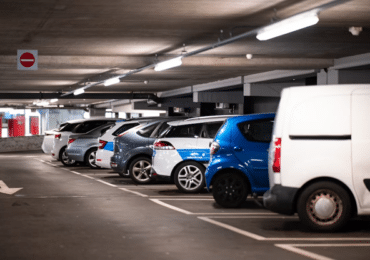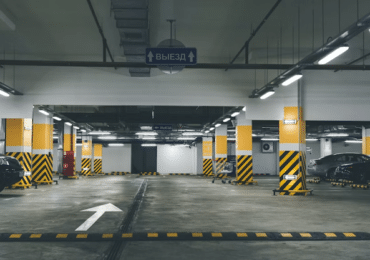Having your vehicle hit while parked can be a distressing experience, but it’s crucial to stay calm and take the right steps to ensure a smooth resolution. Whether you return to find a dent, scratch, or more significant damage, knowing what to do in this situation can save you from unnecessary stress and financial burden. From documenting the scene to contacting the appropriate authorities and insurance providers, being prepared will empower you to handle the situation with confidence and protect your rights as a vehicle owner.

Hire Legal Assistance
In most cases, the claims process can become complex, especially if the responsible party denies liability or your insurance provider does not offer a fair settlement. If you encounter challenges in resolving the situation, it might be beneficial to seek legal assistance from an experienced attorney specializing in auto accidents and insurance claims. Recently, there has been a rise in South Carolina drunk driver claims, especially in parking lots, making it essential to have a reliable attorney on your contact list even before an incident occurs. An attorney can advocate for your rights, negotiate with insurance companies on your behalf, and ensure you receive the compensation you deserve for the damages incurred. While involving an attorney may not always be necessary, it can provide you with peace of mind knowing that you have a professional in your corner fighting for your best interests.
Assess the Damage and Document the Scene
The first course of action, when you discover your parked vehicle has been hit, is to assess the damage carefully. Walk around the car and take photos or videos from various angles to document the extent of the impact. Note any relevant details such as license plate numbers, vehicle makes, and models of other involved vehicles. This evidence will be crucial when filing an insurance claim or if you need to involve law enforcement. Furthermore, if there are any witnesses nearby, ask for their contact information as their statements can support your case.
Gather Evidence and Witness Accounts
In addition to the evidence you gathered at the scene, it’s essential to collect any other relevant information that can support your claim. This may include CCTV footage from nearby security cameras, nearby business records that could have captured the incident, or additional witness statements. Having multiple pieces of evidence can strengthen your case and increase the chances of a successful claim settlement.
Report the Incident to the Authorities
Once you have documented the scene, you should report the incident to the local police or law enforcement. Even if the damage seems minor, having an official report on file can help in processing your insurance claim and identifying the responsible party. The police will conduct an investigation, take statements from witnesses, and provide you with an incident report or a case number for your records. This step is particularly important if you suspect the damage was intentional or if the other party involved in the collision has left the scene.
Notify Your Insurance Company
After reporting the incident to the authorities, contact your insurance company as soon as possible. Your insurer will guide you through the claims process and explain what documentation they require to process your claim efficiently. Provide them with all the necessary details, including the police report, photographs, and any other relevant information. Be sure to understand your coverage and how the claim will impact your policy, such as potential rate increases or deductibles.
Protect Your Vehicle from Further Damage
After discovering the damage, take measures to prevent further harm to your vehicle. If your car is no longer drivable or unsafe to operate, avoid attempting to move it. Instead, contact a tow truck to transport it to a safe location or a trusted auto body shop for repairs. Leaving your car unattended can expose it to additional risks, such as vandalism or theft. Additionally, cover any broken windows or damaged areas with a tarp or plastic sheet to protect the interior from adverse weather conditions. By safeguarding your vehicle from further damage, you can maintain its value and avoid incurring additional expenses during the claims process.

Assessing and documenting the damage, reporting the incident to the authorities, and notifying your insurance company sets the foundation for a successful resolution. Gathering evidence, including witness accounts and CCTV footage, further strengthens your claim, while protecting your vehicle from additional harm is vital to preserve its value. If faced with challenges during the claims process, don’t hesitate to seek legal assistance to ensure your rights are protected. By following these steps, you can navigate the situation with confidence and work towards restoring your vehicle to its pre-incident condition while safeguarding your financial interests.

